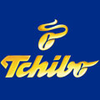
Physicist Dosimetry Expert
Intro The R&D Engineer / Scientist will play a critical role in advancing quality assurance (QA) methodologies for radiation oncology by developing solid phantoms for Plan QA and Imaging in clinical radiotherapy settings.
This position involves designing, testing, and refining solid phantoms that serve as critical tools in treatment planning verification, ensuring patient safety and treatment efficacy.
The individual will work on shaping concepts, defining technical requirements, and performing clinical validation tests in collaboration with medical physicists, clinicians, and QA teams if required.
Tasks 1. Phantom Development : Design and develop solid phantoms for radiotherapy Plan QA or Imaging that replicate human tissue characteristics and meet clinical and regulatory requirements.
Optimize the physical and radiological properties of phantoms to ensure accurate dosimetric and geometric reproduction of clinical treatment scenarios.
2. Conceptualization and Innovation : Research and propose innovative concepts and designs for new solid phantom products or enhancements to existing models.
Collaborate with cross-functional teams to translate clinical needs and technological advancements into viable QA solutions.
3. Requirement Specification : Work closely with clinicians, medical physicists, and QA specialists to gather and shape requirements for solid phantoms based on clinical workflow, treatment modalities, and regulatory guidelines.
Define performance criteria and technical specifications for new phantom designs to ensure they meet stringent clinical needs.
4. Testing and Validation : Design and conduct clinical tests to evaluate the performance, accuracy, and reproducibility of solid phantoms in real-world radiotherapy environments.
Perform comprehensive QA assessments, including dose distribution accuracy, machine and treatment plan validation, and error detection capabilities.
5. Collaboration and Communication : Act as a liaison between the R&D team and clinical staff to ensure seamless integration of solid phantom products into routine QA processes.
Present research findings, development updates, and performance results to internal stakeholders and external collaborators.
6. Documentation and Compliance : Prepare detailed technical documentation, including product design specifications, test protocols, and validation reports.
Ensure all developed phantoms comply with relevant regulatory standards, such as those set by the International Electrotechnical Commission (IEC) or the American Association of Physicists in Medicine (AAPM).
7. Continuous Improvement : Monitor the latest advances in radiation therapy, treatment planning systems, and QA processes to keep the department’s products at the cutting edge of technology.
Engage in continuous improvement efforts to refine phantom designs based on clinical feedback and emerging industry trends.
Requirements Qualifications and Skills : Educational Background : Bachelor’s, Master’s or Ph.D. in Medical Physics, Biomedical Engineering, Radiation Oncology, or a related scientific / engineering field.
Experience : Prior experience in radiotherapy QA, phantom development, dosimetry, or related R&D roles in a medical or clinical setting would be an asset.
Technical Skills : Strong knowledge of radiation physics, treatment planning systems (TPS), quality assurance methodologies or education in medical engineering.
Analytical Ability : Experience with data analysis, clinical validation, and performance optimization in a highly regulated environment.
Collaboration : Ability to work cross-functionally with clinicians, medical physicists, and regulatory bodies to ensure product relevance and safety.
Innovation and Problem-Solving : Demonstrated ability to propose creative solutions and navigate technical challenges in product development.
Communication : Strong written and verbal communication skills for conveying complex technical information to diverse stakeholders.
Preferred Qualifications : Experience with Monte Carlo simulations, material science for phantom development, or software tools for radiotherapy QA would be an asset.
Programming skills for performing data analysis or implementing algorithms to fulfil the tasks listed above. Familiarity with clinical standards and best practices in radiation oncology QA (e.
g., IAEA, AAPM, or ICRU guidelines). Benefits Diverse and challenging tasks / personal responsibility and teamwork / international and dynamic team / development and coaching / team events / a remuneration system that rewards your success / 30 vacation days.
Closing Please apply directly online with salary expectations and start date. If you have any questions in advance, please contact Onyinye Nfiaji on LinkedIn.









